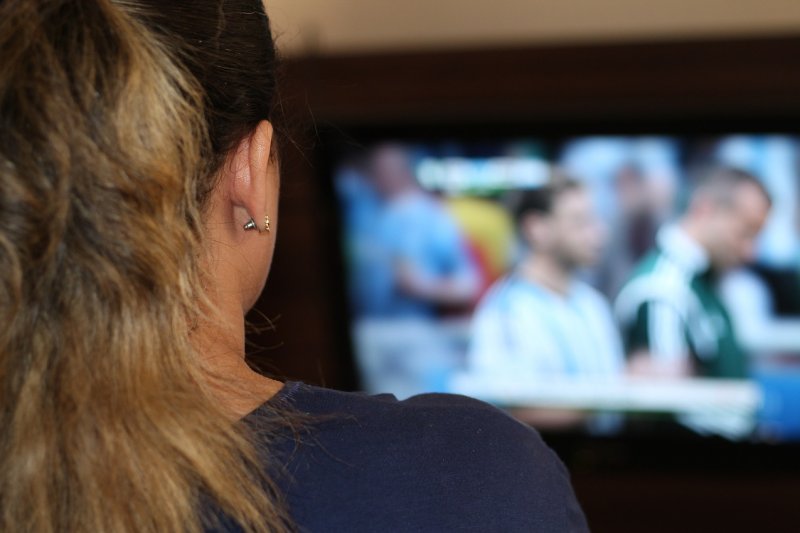Nearly 90 percent of respondents to a recent survey said they have delayed sleep because they were binge watching television. Photo by
wilkernet/Pixabay
Nov. 11 -- Nearly nine in 10 American adults lose sleep to binge watch TV, a new survey finds.
The more than 2,000 U.S. adults who took part in the American Academy of Sleep Medicine poll in September ranked sleep as their second-highest priority, with family being first.
But despite considering sleep important, 88 percent said they'd stayed up late to watch multiple episodes of a TV show or streaming series.
The rate was highest -- 95 percent -- among 18- to 44-year-olds. Many also delay bedtime to play video games, read and watch sports, the survey revealed.
"It's encouraging that Americans rank sleep as one of their highest priorities, but choosing to binge on entertainment at night instead of sleeping has serious ramifications," AASM president Dr. Kelly Carden said in an academy news release.
Younger adults, those aged 18 to 34, were more likely than those 35 and older to have stayed up late to play video games -- 72 percent versus 38 percent -- and men were more likely to do so than women -- 59 percent versus 42 percent.
Two-thirds of respondents said they'd lost sleep to read. Women were more likely to do so than men -- 71 percent versus 61 percent -- the survey found.
Nearly 60 percent of adults lost sleep to watch sports, including 75 percent of men and 45 percent of women. Adults between 25 and 54 years of age were more likely than those in other age groups to have stayed up late for overtime or extra innings -- 54 percent versus 51 percent.
That lost shut-eye can have serious consequences, Carden said.
"Sleep is essential to health, well-being and safety, and chronic insufficient sleep can lead to an increased risk of health problems, mood disorders and motor vehicle accidents," she pointed out.
Losing sleep due to streaming, reading or playing video games can also lead to negative feelings. For example, 24 percent of respondents admitted feeling frustrated after delaying their bedtimes.
Feeling bad was most common for those in Generation Z, born in 1997 or later, with 32 percent that staying up late caused frustration, 23 percent saying it caused worry and 19 percent saying it caused guilt.
Such feelings can make it harder to drift off, especially if a person tries to make up for the lost sleep, according to the AASM.
The poll has a margin of error of plus or minus 2 percentage points and a confidence level of 95 percent.
More information
The U.S. Centers for Disease Control and Prevention has more on sleep.
Copyright 2019 HealthDay. All rights reserved.
![]()
















